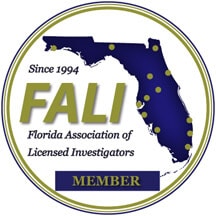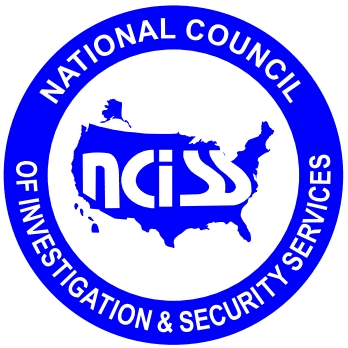First Party Collections
Get access to tools and information when you want it for your first-party collection agency
There are typically two ways to handle credit accounts that are unpaid and go to collections — you can either send them to a third-party collections company, which will attempt to collect the debt on your behalf, or you can send them to an internal first-party collection branch. First-party collection is useful for many companies because it reduces fees and gives you more control over how you collect. However, you need a lot of information to do it right. Here’s how Tracers first-party collection service can help your collection agency with first-party debt collection.
What is first-party collections? Handle client relationships more easily
One of the major benefits of first-party collection is that you have more control over your client relationships. When you try to collect on debts in-house, you’ll be able to maintain direct communication with your client throughout the whole process, rather than communicating through third-party debt collectors. To approach clients directly for a better lasting relationship, you can utilize the contact information available in a public and private records search engine.
- Maintaining good relationships with your clients will help ensure you continue to get business from those clients in the future.Even if you have outstanding debts from a client, you may be able to maintain a good client relationship if you communicate with them directly.
- A quality public and private records search engine with tools like phone appends will help you contact clients directly for debt collection attempts.
Get started with Tracers
For information about how we collect, store and use your personal data, please read our Terms of Service and Privacy Policy.
Use first-party collections tools to find debtors who are trying to avoid debt
In some cases, a debtor may intentionally try to avoid the debt they’re delinquent on. Skip-tracing these debtors can be difficult, especially for first-party debt collectors. While skip tracing tools can make it easier, they traditionally have been mainly available for third-party collection agencies. Quality public and private records database gives you access to skip tracing tools, like address search, so you can skip trace debtors and collect on debt in-house.
- Finding people who don’t want to be found is difficult, and that’s typically when collection agencies use skip tracing.
- When it comes to skip tracing, it’s important that you have the most powerful collection agency tools available.
- Skip tracing tools in a public and private records search engine can help your in-house agency collect on difficult-to-trace debts.
Get in touch with employers and relatives for first-party debt collection
It can be difficult to get the right-party contact information to perform FDCPA first-party collections. In certain cases, you may be legally allowed under the Consumer Financial Protection Bureau to contact an individual’s employers or close relatives to ask them direct questions about a debtor’s last known location or contact information. However, that means you need a way to gather information about a person’s connections. When you use high-quality investigative data software, you may be able to get direct contact information for a person’s employer and relatives.
- Contact information for debtors can be difficult to find, especially for those who are actively trying to avoid you.
- However, in some instances, you may be able to talk to a debtor’s family members or employers to get that information.
- With relationship linking in a public and private records database, you can uncover information about a debtor’s relatives or employers.
Develop a protocol in your first-party collection agency to send records to third-party collections
Even with the best tools, there may still be accounts that your company can’t collect on. Because a third-party collection agency typically only focuses on collections, they’re able to dedicate more time, effort, and research to tracking down debtors, and in some situations, they may even be able to bring in law enforcement. With the information available in a public and private records database, like bankruptcy records, you can develop a protocol that guides your company’s decision on whether or not to send records to third-party collections.
- Even if you have a first-party collection agency, third-party collection agencies can be useful when an account is particularly difficult to collect on.
- As a company that extends credit, you should develop a protocol for when to send accounts to those agencies.
- The information available in a public and private records search engine can help you determine when to send accounts to third-party collections..
Make your first-party collection attempts easier with Tracers
First-party collections can be more cost-effective and efficient than third-party collections, but only if you’re able to access the same collection agency tools that third-party collections companies have access to. If you utilize a high-quality public and private records search engine like Tracers, you’ll be able to access the best tools for in-house debt collection.
Tracers gives you the ability to access expansive information from any device, whenever you want it. You can draw from over 120 billion records, sourced from over 6,000 locations, to get the most comprehensive information on any debtor. You can take long lists of clients and get additional information about all of them at once with batch skip tracing, or integrate our data with your own platform using an API system. Whether you need skip tracing data, financial records, or contact information for your in-house collection agency, you can use Tracers to get it easily.
More information
What is first-party collection?
There are typically two ways to handle credit accounts that go unpaid. You can either send them to a third-party collection company, which will attempt to collect the debt on your behalf, or you can send them to an internal first-party collection branch to keep the debt collection process in-house.
Who can benefit from first-party collection?
First-party collection is beneficial for any agency that needs to collect on debts and wants to minimize costs by allowing them to keep the process within their own organization rather than hiring a third-party service.
What does first-party collection do for a company?
One of the major benefits of first-party collection is that you have more control over your client relationships. When you try to collect on debts in-house, there’s more of a possibility that you’ll be able to maintain your relationship with your client. A third-party collection agency doesn’t give you that amount of control.
What do I need to get started doing first-party collection in my own company?
First-party collections can be easier than third-party collections, but only if you’re able to get access to the same quality tools that third-party collections companies have access to. With a high-quality public records search engine like Tracers, you can draw from over 120 billion records, sourced from over 6,000 locations, to get to the information you’re looking for so that your in-house collection agency can function more effectively.




